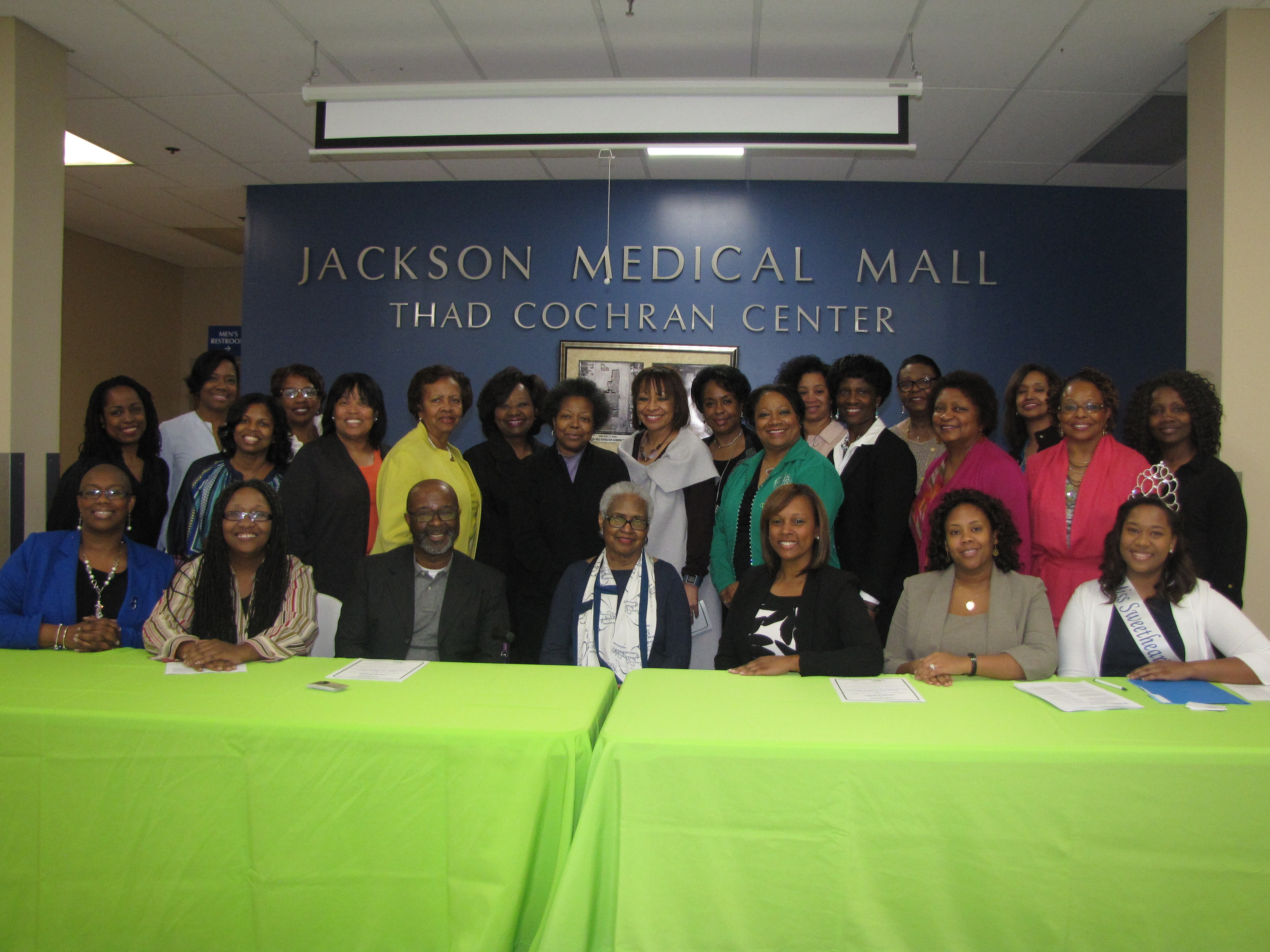

By Janice K. Neal-Vincent
Contributing Writer
The Jackson MS Chapter of The Links, Inc., and the Jackson State University Women’s Council for Philanthropy recently banned together in celebration of Women’s History Month to address mental illness in the African-American community.
The organizations hosted a program at 6 p.m. March 24, at the Jackson Medical Mall’s Community Meeting Room titled Lifting the Veil of Silence: Mental Illness and African Americans.
Dr. Clyde Glenn, board certified psychiatrist and proprietor of Rehoboth Psychiatric Services in Ridgeland, defined mental illness as a clinical change in an individual’s behavior from his/her normal baseline which produces a significant decline, such as isolation or withdrawal from social contact. “The person removes self from any particular environment where he/she may be scrutinized,” Glenn said.
Dr. Pamela Banks, professor and department chair of the Department of Psychology at Jackson State and member of the local Links chapter, assessed that stigma associated with mental illness is strong. “Often times family members don’t want to disclose that their loved ones have mental illness,” she said. But Banks informed attendees that the condition affects the economy, the workplace and the home. She further mentioned that pastors can provide another avenue when they address the matter within their congregations.
Introductions to an engaging dialogue were made by Links members Betty A. Mallett, Esq., National Trends facet chair and Dr. Edith Rayford, National Trends facet. During their dialogue, panelists pointed out internal and external barriers to resisting treatment. Encouraging the mentally ill to seek help remains an issue. Yet, patients are educated about mental illness and treated with medications.
Wanda Lacy, LPC of Hinds Behavioral Health Services and Lacy’s Counseling Solutions, disclosed that her family had no choice about being educated on mental illness. “To dismiss it because it’s occurring in the brain is irrational. Holding it to yourself is not going to get you the help you need,” she said.
Mental health advocate and events editor of the Jackson Free Press, Latasha Willis, explained that it takes at least six months for the patient to trust her. “In a society with so much trauma, African-American males can’t get their feelings out. If they don’t know how to express themselves, they will be in denial. Undergoing treatment is a process,” Willis said.
Former chair of Hinds County Crisis Intervention Team, Attorney Dana Sims, mentioned that the crisis intervention team has a 40-hour course curriculum to identify persons suffering from mental illness. “Rather than taking that person to jail, he would be taken to the University of Mississippi Medical Center where an information report is completed and he is treated by UMMC personnel. Then there would be follow-up,” Sims said.
Tameka Tobias-Smith, executive director of National Alliance on Mental Illness in Mississippi, disfavors institutionalization. “When people go to jail, they’re sitting and waiting. The Legislature and the governor are not helping them. We’re told the state of Mississippi has no funds. Smith then appealed to listeners to join NAMI.
Kaitlyn Watson, 2016 Miss Sweetheart of Jack and Jill of America, Inc. in Jackson said she started her mental illness project because her grandmother died from mental illness. “I feel that someone as young as I can help others,” she said.
Lacy interjected, “Education is the most important thing. We have to teach people that it’s OK to be different. It’s OK to cry, etc. If we don’t, we’ll be overwhelmed and if we don’t meet those expectations, we think we’re defeated.”
Glenn asserted that families have to go through a period of adjustment. “I typically try to encourage them to deal with compassion. A lot of times (family members) are on the street because (relatives) put them out there,” he said.
According to Lacy, “We don’t have the support systems we used to because of the absence of the community.” An audience member responded to Lacy, “The trauma from slavery has been tossed onto each female. It’s very complex. It’s not above us, and we should do something about it.”
Smith then issued an appeal to the females: “It’s OK to say that I’m tired. It’s OK to say I’m depressed. We as women should listen to these (depressed women) and should ask, ‘What is it that you need? What can I do to help you?’”
In summing up the forum, discussants seemingly concurred with First Lady Michelle Obama’s comment, “At the root of this dilemma is the way we view mental health in this country. Whether an illness affects your heart, your leg or your brain, it’s still an illness, and there should be no distinction.”
Dr. Theresa Green of the local Links chapter proffered departing words by saying, “Lifting the veil of silence means all of us have a responsibility to speak up and speak out about mental trauma that has paralyzed our African-American community.”

Be the first to comment